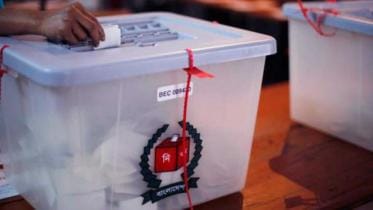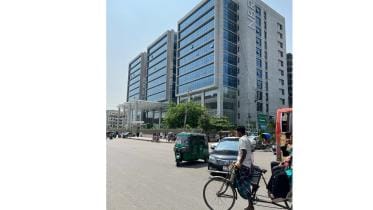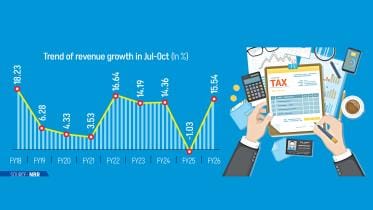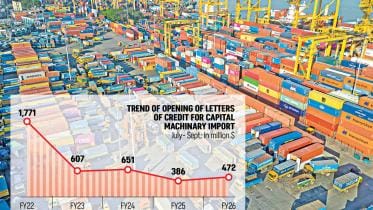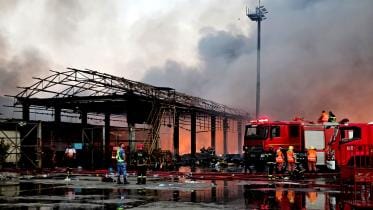What may cash aid actually mean?
As Bangladesh approaches the February general election, political parties are once again centring their campaign promises on the household ledger.
23 January 2026, 04:41 AM
NBR misses target by Tk 46,000cr despite 14% collection growth
The National Board of Revenue (NBR) posted a 14 percent growth in revenue collection in the first half of the current fiscal year (FY), yet missed the target for the period by a staggering Tk 46,000 crore or nearly 10 percent.
21 January 2026, 00:00 AM
Online tax, offline refund
Taxpayers struggle to recover overpaid taxes as the manual refund system leaves money inaccessible
20 January 2026, 00:00 AM
Inflation rises to 8.49% in December
Following months of a brief pause, inflationary pressures continued to rise in December for the second consecutive month.
5 January 2026, 18:00 PM
A year of reform and resistance in the tax sector
A five-member advisory committee was first formed to guide the reforms
30 December 2025, 18:00 PM
A year of reform and resistance in the tax sector
Protest, turmoil, and punishment -- these three words defined Bangladesh’s revenue sector in 2025, a year marked by the split of the National Board of Revenue (NBR), a major source of government income..Following a mass uprising in August last year, the interim government launched long-awa
30 December 2025, 16:02 PM
House rent climbs for three consecutive quarters
Arbitrary increase, slack law enforcement, high inflation to blame
28 December 2025, 18:00 PM
A year without job security
Layoffs outpaced hiring, while employment shifted toward low-quality informal activity
28 December 2025, 18:00 PM
NBR proposes 47% increase in staff to run two new divisions
The NBR submitted the manpower proposal to the finance ministry last week
13 December 2025, 18:00 PM
Construction sector sees falling costs amid weak demand
Construction costs in Bangladesh fell for the seventh consecutive month in November, as official data from the Bangladesh Bureau of Statistics (BBS) showed a continued slide in building-material prices amid weakening market demand, according to industry insiders.
11 December 2025, 18:00 PM
VAT dominance squeezes consumers as income tax lags
VAT is charged at every stage of production and sale, and consumers always bear the final cost
10 December 2025, 18:00 PM
Rising food prices push inflation to 8.29% in Nov
Economists warn of raising further
7 December 2025, 18:00 PM
NBR logs 16% tax growth in Jul-Oct
Revenue collection rose nearly 16 percent year-on-year in the first four months of the current fiscal year, thanks to a turbulent base period last year and a more settled political and business climate now.
20 November 2025, 18:00 PM
Tangail BSCIC park blows past six deadlines, cost rises 2.5 times
Nearly a decade ago, the Bangladesh Small and Cottage Industries Corporation (BSCIC) took up a project to build an industrial park in Mirzapur upazila of Tangail. The goal was noble—creating employment through industrialisation two years after implementation and eventually reducing poverty.
17 November 2025, 18:00 PM
Shortage of contraceptives, medicine may end soon
The ongoing shortfall in the supply of medicines, family planning materials and the procurement of medical equipment is likely to ease soon as three related projects are scheduled to be placed before the ECNEC for approval today.
9 November 2025, 18:31 PM
Inflation eases slightly to 8.17% in Oct
Non-food prices cross the 9% mark again
5 November 2025, 18:00 PM
Machinery imports rebound
In terms of intermediate goods, LC opening rose by 1.59% during the period
26 October 2025, 18:00 PM
Inflation outpaces wage growth for 44th month
For nearly four years, prices in Bangladesh have been rising faster than people’s pay. Every month, workers earned a little more on paper, but that extra money did not stretch as far in the market. Now, for the past two months, even the pace of income growth has started to slow, making an already difficult situation even worse for low- and middle-income families.
23 October 2025, 19:45 PM
Is there any redress for airport fire victims?
The massive fire that engulfed the cargo complex at Hazrat Shahjalal International Airport on Saturday has left importers grappling with the loss of consignments worth crores of taka. They now face a painful question: is there any legal or financial redress for their losses?.There are two
21 October 2025, 19:04 PM
Airport fire sends shockwave across supply chains
Raw materials for peak-season garment shipments, medicine ingredients, and telecom equipment gutted
19 October 2025, 18:06 PM












